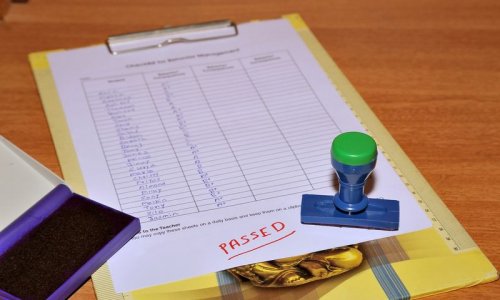- Home
- Blog Archives
Japanese Sentence Patterns
-

【JLPT N5★から (kara) “from,since”】
Meaning: from, sinceGrammar Point: 「〜から」 is used to indicate the starting poin…
-

【JLPT N5★から (kara) “because, since”】
Meaning: since, because Giving a reason or cause for an action or situation.…
-

【JLPT N5★ か (ka) ” A or B, choice between 2 …
Meaning: Expressing choices or alternatives, or forming yes/no questions.Gramma…
-
【JLPT N5★いつ (itsu) “when”】
Meaning: Asking "When...?" to inquire about the time something happens or happen…
-
【JLPT N5★だれがいちばん…のか。”Who is the most….?” 】
Meaning: Asking "Who is the most...?" to inquire about the person who has the hi…
-

【JLPT N5★ いちばん (ichiban) ” the most, the bes…
Meaning: Expressing "most" or "the best/worst" to indicate the highest degree of…
-
【JLPT N5★どう (dou) “how, what, how about̶…
Meaning: Asking "How do you...?" or "In what way do you...?" to inquire about me…
-
【JLPT N5★どう (dou) “how”】
Meaning: Asking "How...?" or "What do you think about...?" to inquire about some…
-

【JLPT N5★V[ない-form]でください。”Please don’t…
Meaning: Expressing polite requests or instructions, meaning "please don't..." o…
-

【JLPT N5★だろう(darou)+ “to express a strong am…
Meaning: Expressing supposition or conjecture, meaning "probably" or "I think/su…
-

【JLPT N5★誰が(dare ga)”who”】
Meaning: Asking “Who…?” with emphasis on the subject.Grammar PointThis patter…
-

【JLPT N5★V[て-form] ください。”Please do….”】…
This grammar is used when you request or recommend someone to do something. In E…
-

【JLPT N5★だけ dake (particle) ” just, only, si…
Meaning: only, justGrammar Point「だけ」 is used to indicate limitation, meaning …
-

【JLPT N5★The Conjunction “が” (ga)】
Meaning①introduction②Although S1, S2. S1, but S2.① the particle "が" can be us…
-
【JLPT N5★なぜ(naze) “why”】
Meaning: Asking for a reason or cause.なぜ is a counterpart to “why” in English.…
-

【JLPT N5★ない(nai)+ほうがいい (hou ga ii) “It’d be …
Meaning: "it's better not to..." / "you shouldn't..." (giving negative advice or…
-

【JLPT N5★Period + に(ni) + frequency】
Meaning: "X times per "Grammar Point: Using "回" (kai) with time intervals expr…
-

【JLPT N5★ ほうがいい (hou ga ii) “it’s bet…
Meaning: It’s better to…Grammar PointThe structure 〜たほうがいい is used to give ad…
-

【JLPT N5★V1[ます-form] ながら、V2】
Meaning: while doing …Grammar Point「〜ながら」 is used to indicate that two action…
-

【JLPT N5★とき(toki) ”when”】
Meaning: when … (describes the time or situation in which an action happens)“とき…



